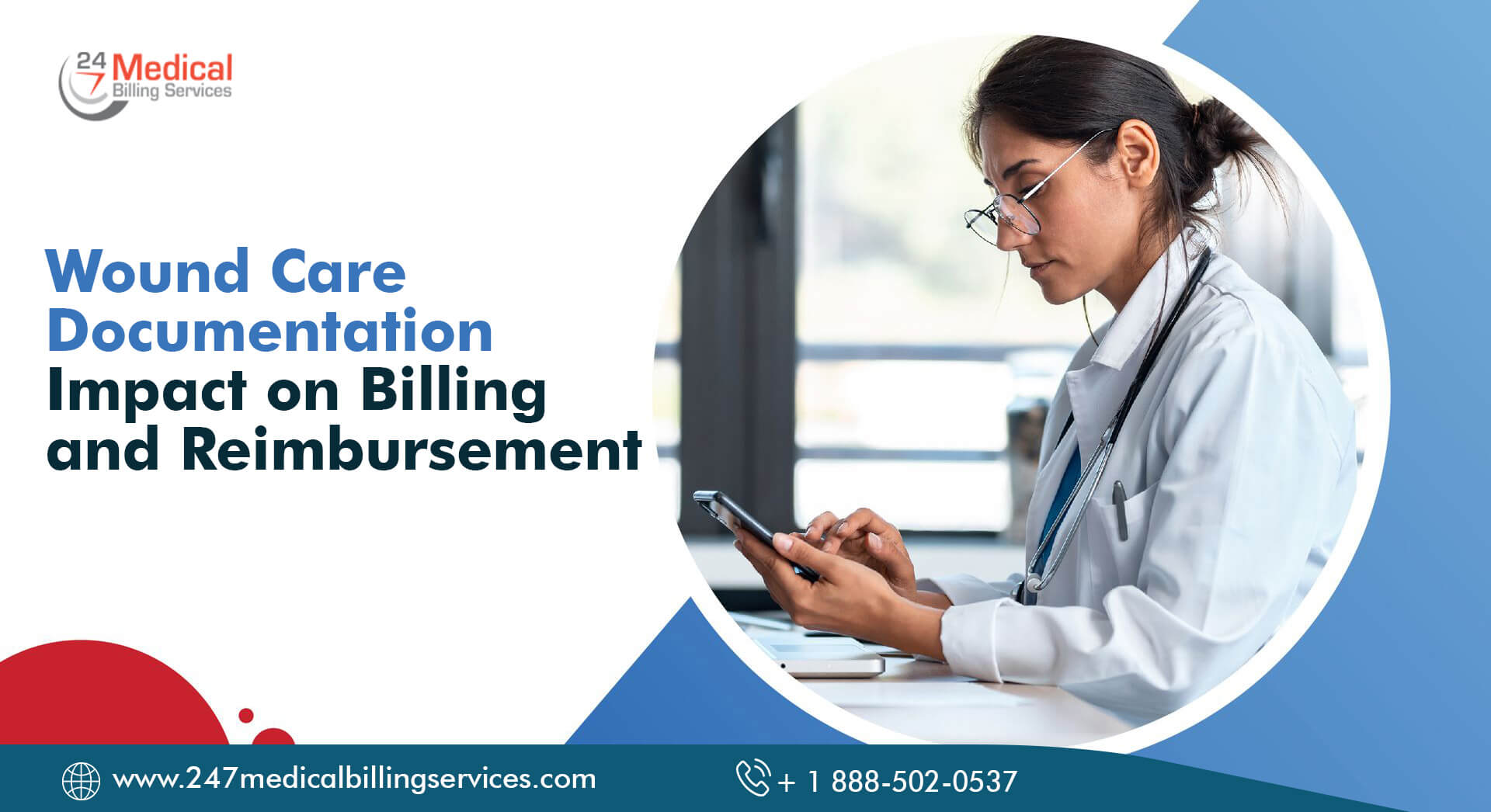
Wound Care Documentation Impact on Billing and Reimbursement
Wound care documentation demonstrates the requirements that each healthcare provider satisfies, as well as the areas where they can improve to provide better service. In fact, the in-house team efficiency improves once these areas are discovered. We explore the significant influence of wound care documentation on the financial aspects of healthcare, including billing and reimbursement.
According to a survey conducted by the Office of the National Coordinator for Health Information Technology, 82% of hospitals or clinics used documentation to improve the quality of care.
The consequence is that wound care documentation serves an essential purpose for improving the healthcare system in addition to patient care. However, there is a need to be aware of different aspects of wound care documentation to ensure accurate wound care billing with maximum reimbursement.
How does Wound Care Documentation Impact on Your Revenue?
A well-documented wound care record improves revenue cycle management. Patients receive the required care, and providers are compensated for services rendered. This is accomplished through documentation, which enables accurate coding, efficient claims processing, timely payments, and reimbursement.According to research, correct documentation procedures account for 95% of appropriate and timely reimbursement, while the remaining 5% is about mastering government requirements from a documentation compliance standpoint. Wound care documentation eliminates any gaps that may exist in any phase of the healthcare revenue cycle.
Furthermore, there is no denying that the revenue cycle of any hospital or healthcare provider is inextricably linked to patient care, from scheduling through billing. However, wound care documentation's additional objective is to maximize revenue - the only way to keep hospital doors open. Once this procedure is provided to wound care documentation improvement professionals, specific actions are implemented to convert billings to cash inflow.
What are the Challenges involved in Wound Care Documentation?
While wound care documentation can increase clinic revenue and efficiency, some risks should be considered. Consider the following factors while dealing with wound care documentation:Technology issues: Outdated technology may make communication and reporting more difficult. Technology modifications may be required while adopting a wound care documentation plan.
Duplicate or conflicting information: Some providers' intake charts may have duplicate or inconsistent data with their patient records. Wound care documentation can assist in removing and preventing unnecessary reporting.
Physician engagement: After introducing the wound care documentation system, physicians must comply with new requirements and communicate as needed.
While you may confront these difficulties, the overall impact on patient well-being necessitates wound care documentation for many individual healthcare practices. As personnel solve specific challenges, a ripple effect occurs that improves all elements of the healthcare system.
How to Improve Wound Care Billing and Reimbursement?
Strategy #1: Collecting patient information accurately
You must collect complete demographic and insurance information during the patient screening phase. Acquiring reliable patient data is the foundation of an effective claims procedure.It is critical to obtain a duplicate of the patient's insurance card. When working with repeat customers, it is a great practice to request a replica of their health insurance card at each appointment and compare it to information in your system. Claims are routinely denied in offices that do not follow this approach as their patient demographic data is wrong.
If you're experiencing a sudden surge in denials or a trend of consistent denials, there could be an issue with your intake procedures. Giving your front desk personnel feedback after many claim denials allow them to discover the underlying problem, make required improvements, and gather data necessary for future clean claims.
Strategy #2: Team Education
If accurate, adequate, and logical documentation is causing productivity declines, your in-house team may require additional training. It's critical to ensure that everyone in the clinic is on the same page regarding paperwork. This may necessitate relearning the fundamentals for some in-house team members.The findings of testing, communication, and reporting should serve as the foundation for educational decisions. The primary goal of teaching and retraining should be to clear up any confusion or uncertainty in reporting.
Wrapping Up!
Overall, the importance of accurate wound care coding is enormous. Aside from the adverse effects on patients, disregarding the need for wound care documentation can lead to financial and legal repercussions for healthcare practitioners.24/7 Medical Billing Services has created wound care documentation modules over the years to assist healthcare providers in identifying critical issues to cover while documenting a patient visit, guaranteeing compliance continuity of care, and mitigating the risk of reduced reimbursement owing to a lack of accurate documentation.
See also: How To Expedite Your Wound Care Medical Billing Process?

.png)